Love keeping people cool in summer and warm in winter? New Hampshire can reach pretty extreme temperatures in both seasons, making HVAC workers into minor heroes when a system breaks down.
To work in this growing trade in the Granite State, you might be pleased to know there are no state-level licensing requirements.

How to Become an HVAC Technician in NH
Becoming an HVAC technician in New Hampshire offers a very promising career to an individual. People have realized that and seem to wonder what one must do to become an HVAC tech.
Well, the details of specific certification requirements will be discussed in the later sections. However, if you want to learn about attaining a New Hampshire License, the simple conclusion is that becoming an HVAC technician requires knowledge and practical experience.
- To enter the industry, you can look into the training programs offered by recognized institutions to get a proper diploma in HVAC. This will help you obtain the necessary knowledge for operating HVAC equipment, systems, machinery, etc.
- You will require hands-on experience, which will be a part of your training. Becoming an HVAC technician in any field requires training hours and on-job hours as well.
- Initially, you will have to work under an experienced technician until you have met the necessary hours required. Experienced technicians will also provide better insight into what licenses are required, depending upon the stream of the field you opt for.
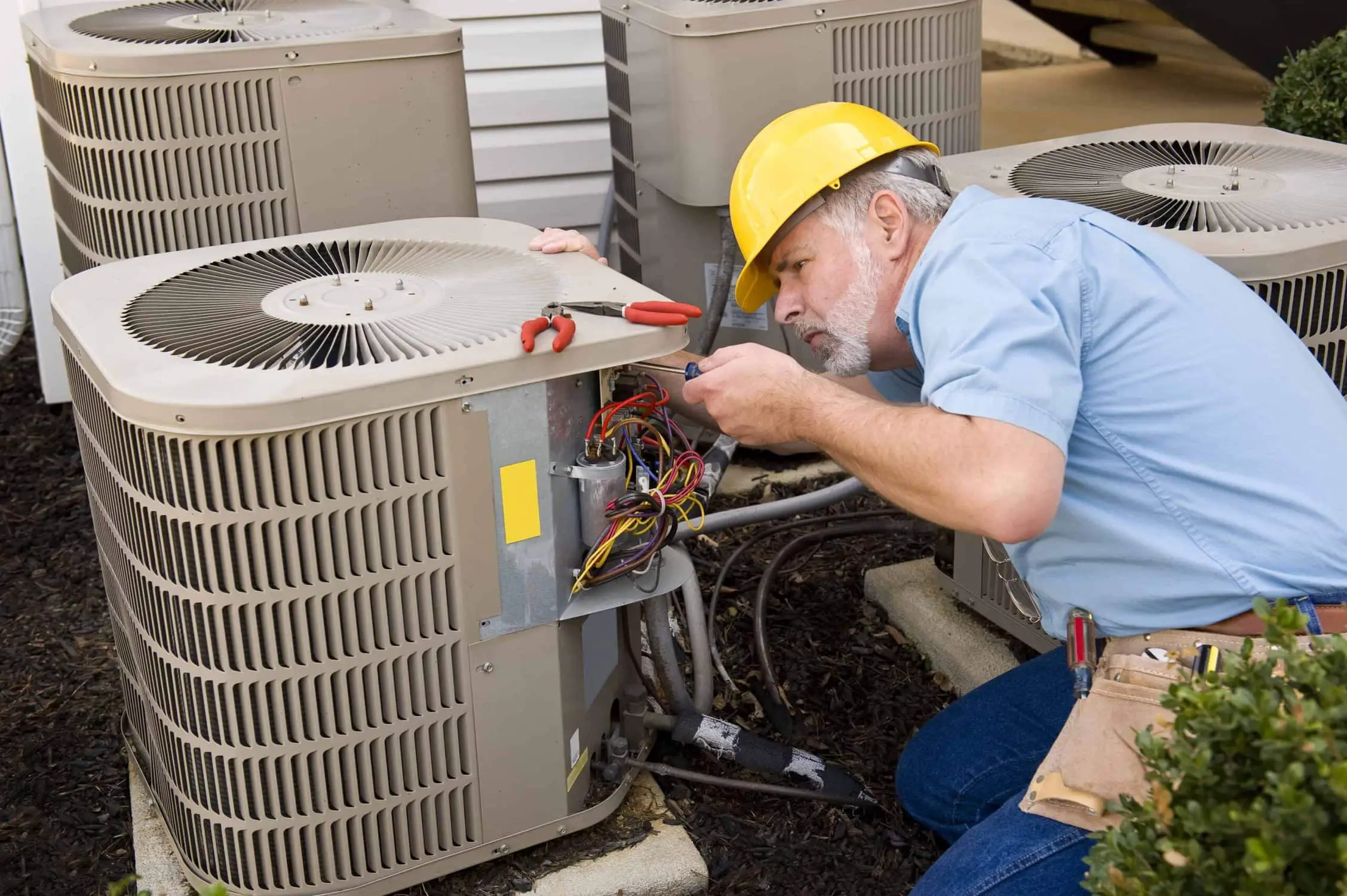
What Makes New Hampshire a Great Place to Start an HVAC Career?
You must wonder what the fuss is about. Why exactly is New Hampshire such a great place to have a career as an HVAC technician? There are multiple factors involved, making it such a great location to pursue your career in this field.
So, let’s have a quick look:
Great Salary
NH wasn’t the ideal place to have an HVAC career until a few years ago. However, when Amilia’s Law was passed, things have taken quite a turn ever since. As of 2015, the top ten HVAC technicians made an average salary of $76,080, which is quite impressive and higher than what many states offer.
Increasing Demand
The biggest reason one wants to become an HVAC technician in NH is how promising the future is. Many experts predict that the jobs will increase over the years, and with the incredible salary package, it can be a great field to build a career in.
Excellent Institutions
Another attraction is the incredible institutions in New Hampshire that offer associate degrees. These degrees are gateways to theoretical knowledge and practical work, ensuring a bright future in the HVAC industry.
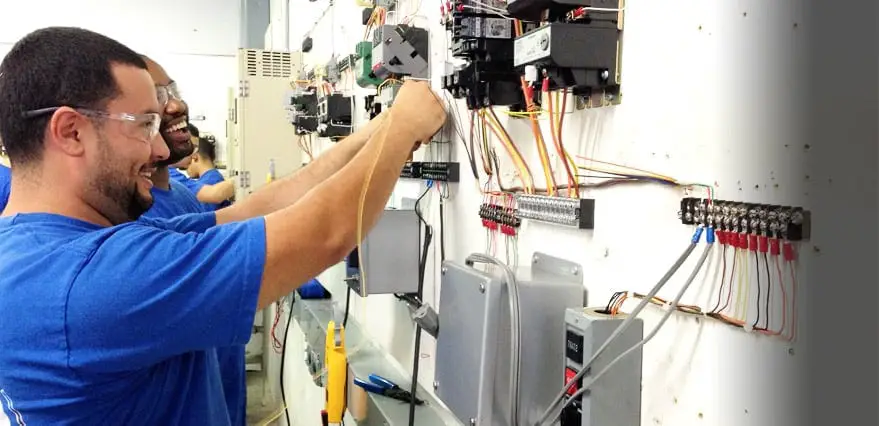
Requirements For Becoming an HVAC Tech
Education and training go hand in hand for an HVAC technician. There are certain ways employed by the state to ensure that you can get appropriate qualifications. A few streams you can follow within the industry and the requirements for each of these streams are different.
These requirements, most commonly, include classroom experience, training hours, and examinations. All the licenses (voluntary) are issued through the Department of Safety.
Oil Heating Technician
There is a voluntary certification offered. However, it is not mandatory. To become an oil heating technician, you are required to have about 4000 hours of on-job experience. Furthermore, one of the following certifications is required.
- NORA (national oil heat research alliance) silver certificate
- NORA (national oil heat research alliance) gold certificate
- NATE (North American technician excellence)
Both of the following certificates are required:
- Oil heating installation module
- Oil heating service technician
Fuel Gas Installation Technician
A fuel gas installation technician is essentially concerned with installing gas appliances and their piping from internal sources. They are required to have 1000 hours of on-job experience plus 100 hours of training.
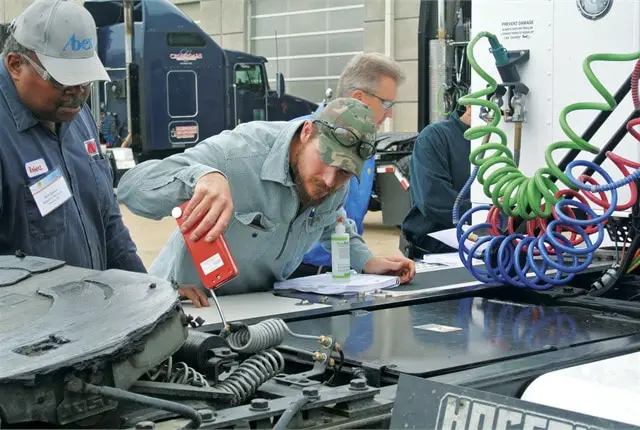
Fuel Gas Service Technician
A service technician is concerned with servicing and repairing the interior and exterior piping of the appliances from the meter. It requires 140 hours of training and 2000 hours of field experience.
Hearth System Installation and Service Technician
As the name suggests, a hearth service and installation technician is responsible for the repairs, service, and installation of hearth and venting systems. It requires 2000 hours of field experience and 60 hours of training.
What Licenses Are Needed to Work in HVAC in NH?
There are no mandatory licenses required to work in the industry in New Hampshire. However, there are certain certifications necessary alongside some exams. It is standardized in the USA for every HVAC technician to have an EPA certification under section 608 as they are working with many environmentally hazardous refrigerants such as freon or ammonia.
This certification has four categories, namely; Type I, Type II, Type III, and Universal.
License For Fuel Gas Fitters
There is a required certification for Fuel Gas Fitters if you deal with that area. This includes both natural gas and liquid propane. This specialty license covers any kind of piping, appliance installation and ventilation related to these.If you deal with these areas, you can find more information on the New Hampshire Employment Security website.
Optional Certification For Heating Equipment Technicians
There are some certifications you can get for certain related industries, but they’re not mandatory. For instance, you may be interested in the Heating Equipment Technician Certification, which recognizes competency in both residential and non-residential service of heating equipment, water heating equipment and appliances that use heating oil.
If you’re getting NORA or NATE certification, you might as well get this, as well; it has the same requirements. Employment Security has the application.
Local Regulations
It’s always important to check with county and state offices to see if there are local licensing requirements. We looked at some of the largest cities and didn’t find any such licenses, but it’s best to verify and to see if there have been any changes.
Of course, it’s also necessary to check for any project permits you’ll need before performing major work.
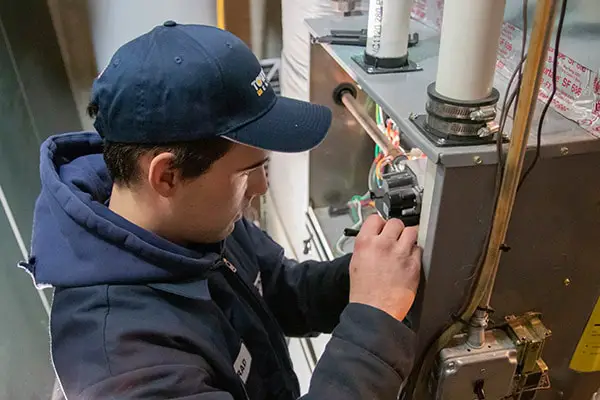
EPA Certification
If you work with refrigerants, you probably already know about the Environmental Protection Agency requirements. Under Section 608, anyone who works in this area, anywhere in the USA, must be certified. Our article on EPA certification will show you the types of certification available based on the equipment you work on.
EPA Section 609 covers air conditioning systems in motor vehicles, so if that’s the only place you deal with refrigerants, it’s probably the best option for you.
HVAC Exam Preparation in New Hampshire
An HVAC technician is required to pass relevant examinations for the field they have chosen.
There are some tricks and recommendations which will certainly aid you with exam preparations:
Study Programs
There are several study programs offered by institutions that aid in the preparation of these exams. They will teach you the basic classroom knowledge required in the HVAC industry and also help you develop problem-solving skills required. Getting enrolled in a study program will certainly be of great help.
Self-Study
Your attitude throughout your exam prep matters a lot. Self-studying, as well as a budget-friendly method to get yourself ready to ace the examinations, is very important. It is essential to have discipline and learn whole-heartedly so that you can clear the exam without hindrance.
Job Outlook and Salary for HVAC in New Hampshire
The salary and benefits that come along with a job are certainly often the top-most motivators for a person to pursue their career. Previously, people didn’t look at New Hampshire as a good place to start their HVAC careers since there wasn’t much scope in the field.
But the situation has drastically changed since 2003 after a gas leak and explosion took place and resulted in six people losing their lives.
After this incident, the legislation was urged to take action. In 2007, the Amilia Law was passed, requiring a license for all individuals working with gas piping and HVAC appliances.
The average salary for the technicians was recorded to be around $76,080 as of 2015, which is truly incredible. The numbers have only gone up, and the HVAC industry is predicted to flourish more in the upcoming years.
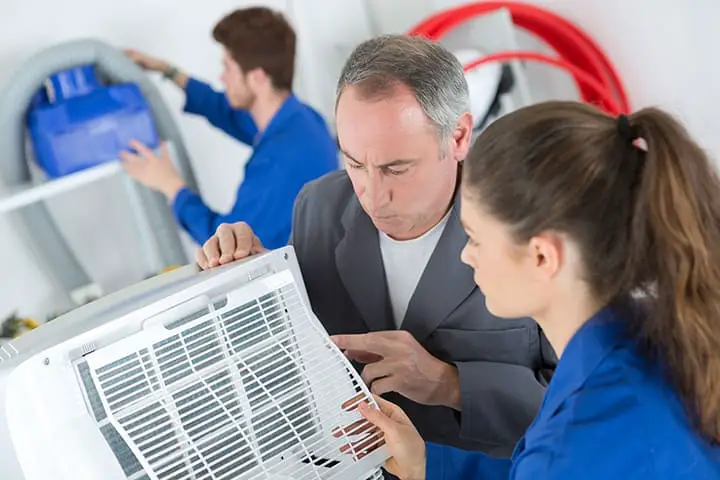
What is the Average Hourly Rate of an HVAC Installer in NH?
- Entry-Level: $24.91 per hour
- Mid-Level: $36.66 per hour
- Master-Level: $44.67 per hour
New Hampshire Cities with Highest Average HVAC Salaries
A very common query that people often have is about cities with the highest average salaries in NH. It is important to know that the salary depends upon years of experience, education level, skill set, etc.
It might vary from person to person, and city to city. With the flourishing HVAC industry, New Hampshire is recorded to have some of the highest recorded salaries in the country, which is impeccable.
Here are some cities with the highest average salaries:
- Portsmouth: $32.40 per hour
- Concord: $38.81 per hour
- Manchester: $44.67 per hour
- Nashua: $35.22 per hour
- Hooksett: $29.93 per hour
Insurance and Tax Information for HVAC in NH
One significant consideration you should take care of while working in the HVAC industry in NH is insurance and tax. In general, contractors do not need any such licenses to work. However, if one is working with natural gas, they must register with the state to follow the tax and general business licensing regulations.

The registration happens through the Department of Safety. As far as employees or technicians are concerned, they must be listed in the application, and there must be one employee designated as the managing employee.
Furthermore, the registration fee differs according to the number of employees.
Registration fee:
- One to five employees – $190
- Six to 20 employees -$300
- 21 or more employees – $460
- Solo license – no fee
Conclusion
HVAC Techs in New Hampshire can start out making an awesome $16.63 an hour, with an experienced tech earning about $24.30. Not a bad way to get going! There are lots of opportunities to learn the trade through schools and apprenticeships, so develop your skill set.
If you work in the limited specialties where certification is needed or offered, it’s a good idea to check those out and take the path to success!
People Also Ask
When it comes to becoming an HVAC technician, people tend to have a lot of questions and confusion that must be cleared. So, here we have solved some of the most frequently asked questions.
There are no licenses required! In New Hampshire. There is no statewide licensing required to become an HVAC installer, yet education and training are essential.
There is no set requirement to become an HVAC tech in New Hampshire. However, some technicians required a high school diploma or GED to get hired. Furthermore, there are now courses in institutions that teach the basics of HVAC. Therefore, the educational requirement for those may differ from institute to institute.
Looking For Information On Nearby States?
You might also be interested in HVAC licensing requirements in bordering states:
